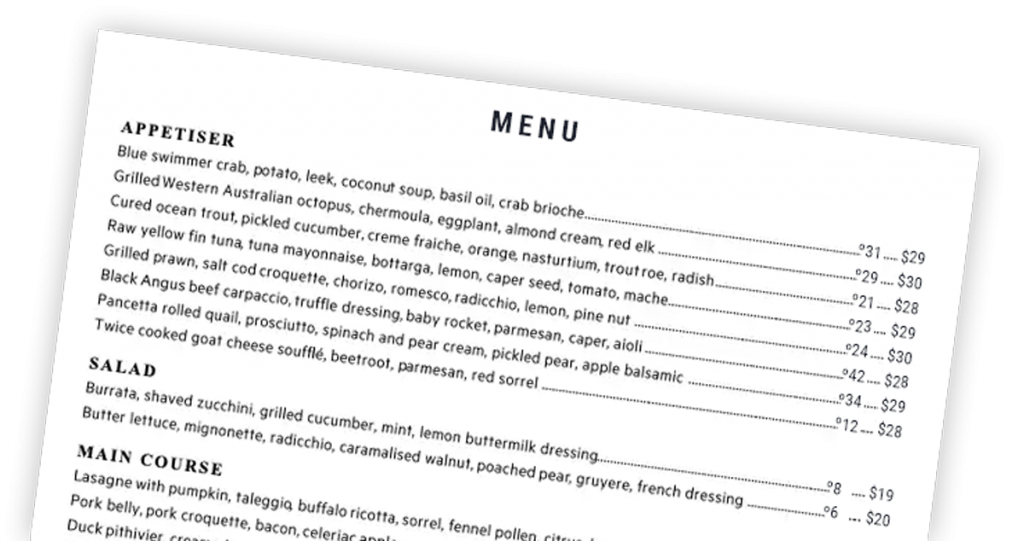eCost Index
Imagine a world where the environmental cost has equal billing with the financial cost
We make purchase decisions every day based on the information at hand, most often that’s cost, brand and previous experience / recommendations. But what if we could just as easily make an informed choice based on the environmental cost?
The eCost index will make this possible by providing free research based and easily accessible tools businesses can utilise to provide this crucial information to their customers.
How it works
The index will consider the environmental impact of the production process, land clearing, packaging and transport across the lifetime of each ingredient and assign it an index, simply adding these with a rough percentage will equal the eCost of of your menu item.
EXAMPLE
Line caught, locally sourced, Silver Dory, micro greens ……………………………. °13 $36
Grain fed Rib Eye, Dry Aged (400g), potato puree ………………………………….. °51 $54
The benefits
Exposing the environmental impact at the point of purchase allows everyone to make more informed choices and encourages consideration of more than just price.
For proprietors it allows them to position their business as environmentally aware and provide additional value to their customers. They may also choose to feature more environmentally aware options as this aligns with their personal or business ethics.
A potential knock on effect would be to encourage producers to reduce their eCost. Having this cost exposed to clientele may well reduce sales of poorly performing options and increase sales of more environmentally friendly options, encouraging producers to make changes that would reduce their impact, improve their rating and hence increase sales.
For producers who actively consider the environmental impact of their products the index would provide independent validation of their effort and a proof point to encourage sales to like minded customers.
Why menus?
We believe menus are an excellent starting point as they are simple to implement, cheap, provide a great comparison environment across different food types and can be updated regularly at minimum cost, unlike packaging for example.
There is also a lower barrier to implementation as a hospitality venue has less interest in what item you buy on a menu as long as you buy something. Unlike a primary producer who only produces one type of food, who may be more likely to be concerned the index will reflect poorly on their product.
Many hospo venues are already making efforts to reduce their environmental impact and act ethically, Re in Eveleigh, Nomad in Surry Hills and Cornersmith in Annandale to name just a few. This initiative sits well in this mindset.

